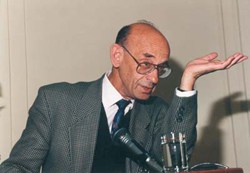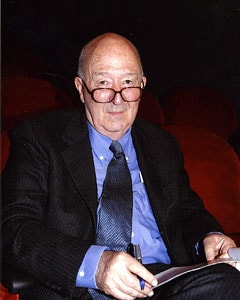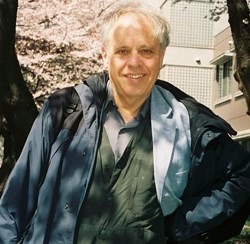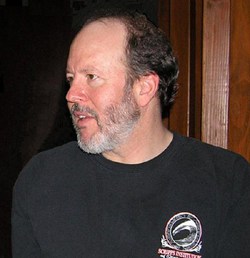

Bronislaw Baczko (Switzerland/Poland), University of Geneva, for Enlightenment Studies
Peter R.L. Brown (USA/Ireland), Princeton University, for Ancient History (The Graeco-Roman World)
Russell Scott Lande (UK/USA), Imperial College, London, for Theoretical Biology or Bioinformatics
Joseph Ivor Silk (USA/UK), Johns Hopkins University, Baltimore, for The Early Universe (From the Planck Time to the First Galaxies).

The ceremony took place in the presence of the Chairmen of the International Balzan Foundation „Prize”, Bruno Bottai, and „Fund”, Achille Casanova. In accordance with the ceremony’s usual formalities, each Prizewinner, introduced in turn by Salvatore Veca, Chairman of the General Prize Committee, gave a speech of acceptance and thanks.
According to established tradition reflecting the Italo-Swiss nature of the International Balzan Foundation, the Award Ceremony takes place in alternate years in Rome, in the presence of the President of the Italian Republic, and in Bern, in the presence of a Representative of the Federal Council of the Swiss Confederation, usually the Head of the Federal Department of Home Affairs.
Balzan Prize was awarded to Bronislaw Baczko “for his contribution to philosophical reflection dedicated to Rousseau’s thought and to the study of the political and social consequences of the Enlightenment on the French Revolution”.

Peter R.L. Brown
Prize went to Joseph Ivor Silk “for his pioneering work on the early evolution of the universe, studying the effects of various physical processes and phenomena such as dark matter and space curvature on the fluctuations of the Cosmic Microwave Background and the formation of galaxies of different types”.
Russell Scott Lande received his Prize “for pioneering contributions to the development and application of theoretical population biology, including the modern development of the theory of quantitative genetics, and the study of stochastic population dynamics”.
The International Balzan Foundation awarded 750,000 Swiss Francs (approx. €610,000, $830,000, £520,000) for each 2011 prize, a figure which places the Balzan Prize amongst the most remunerable prizes in Sciences and Humanities. The winners are each required to allocate half of their prize money to funding research projects carried out preferably by young scholars or scientists in their respective fields.

Joseph Ivor Silk
The Ceremony was preceded, on 17 November, by the Balzan Prizewinners Interdisciplinary Forum, organized by the Balzan Foundation and the
Swiss Academies of Arts and Sciences, which took place at the Swiss National Foundation for Scientific Research. The Forum was a public event dedicated to the Balzan Prize subject areas with the four Prizewinners entering into discussion with Members of the Balzan General Prize Committee and Members of the Swiss Academies and of the Accademia Nazionale dei Lincei in Rome.

Russell Scott Lande
Ufficio Stampa
Fondazione Internazionale Balzan
